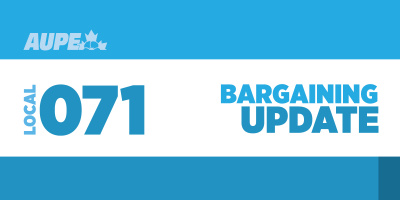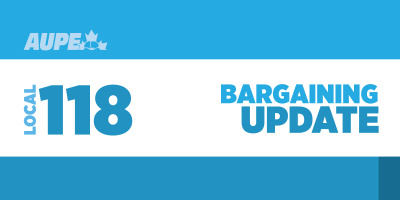You’ve probably heard of stewards helping your coworkers file grievances against your employer, but you may be wondering exactly what this entails.
Grievances are something you can do when your employer has violated your rights. If you think it’s time to file a grievance, reach out to your steward. Stewards are special because they’re your colleagues: they know what it’s like to work in your workplace, and often know exactly what you’re going through.
First, the steward will help you determine what type of grievance you’re dealing with:
Individual grievance: An individual grievance is when an individual’s rights have been violated.
Group grievance: A group grievance is when a group of coworkers' rights have been violated.
Policy grievance: A policy grievance is a complaint by the union that an action of the Employer (or its failure or refusal to act) is a violation of the agreement that could affect all who are covered by the agreement. This can vary depending on the specific collective agreement language.
Once you determine the type of grievance you want to file, you must collect some key information, like who is involved, and the employer’s title and job classification. You’ll also want the name and title of the supervisors and/or witnesses to the event.
Then you and your steward will describe exactly what and when it happened in chronological order. If you’ve got pictures or even drawings of the event, that will help. You’ll want to explain why you believe this is a grievance and how it breaches your collective agreement. Be specific: write down the Act or Code. And lastly, what do you want to come of this? How do you envision the grievance settlement will look? Do you want vacation time returned or your overtime wages paid in full?
Grievance settlements are generally limited to undoing the violation. If a payroll grievance alleges that you were out of $200 you are unlikely to get more than $200 back.
Once you’ve determined this information, your steward will reach out to your Membership Service Officer [MSO] for a copy of the official AUPE Grievance Form and you and your steward will fill it out together. If you need help with this process, your MSO can help you figure out the details.
Once a grievance is filed the MSO in consultation with the member and Steward will arrange a date and time for a grievance meeting. Depending on the Collective Agreement language and/or the details of the grievance, there may be one or multiple grievance meetings. In each grievance meeting, the MSO, Steward and the grievor will present the facts and evidence collected and put forward the arguments that support the grievance. If the grievance is not resolved at these grievance meetings, the MSO prepares a summary of the grievance and includes all relevant facts and information about the grievance and forwards the grievance file to the Disputes and Arbitration department for a decision on if the grievance should be further reviewed by the AUPE Grievance Review Board or be conveyed to arbitration and assigned to a Union Representative.
If you’ve got any questions about grievances, or want to file one, reach out to your steward, MSO or negotiating team.
Keep an eye out for future editions of Steward Notes in our monthly issues of Direct Impact. If you’re a steward or curious about becoming one and have any questions, don’t hesitate to reach out and ask! Just send an email to [email protected].


